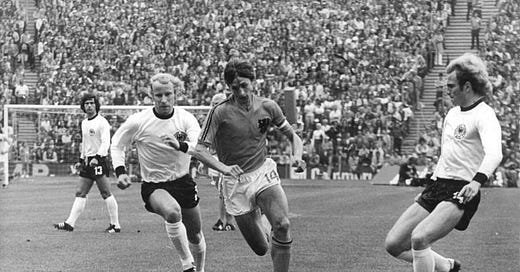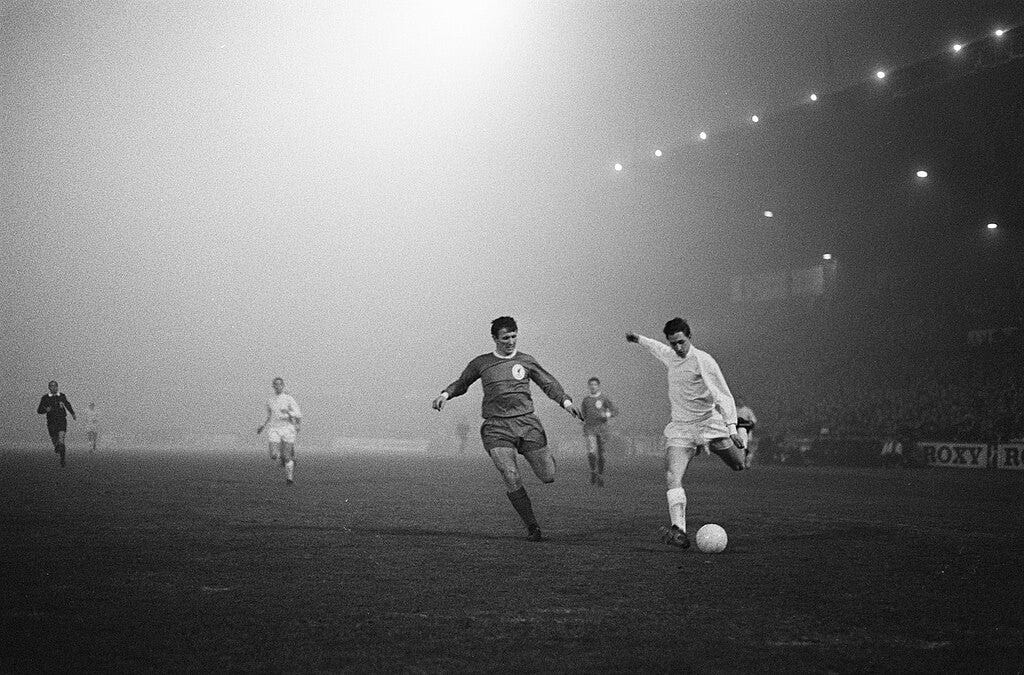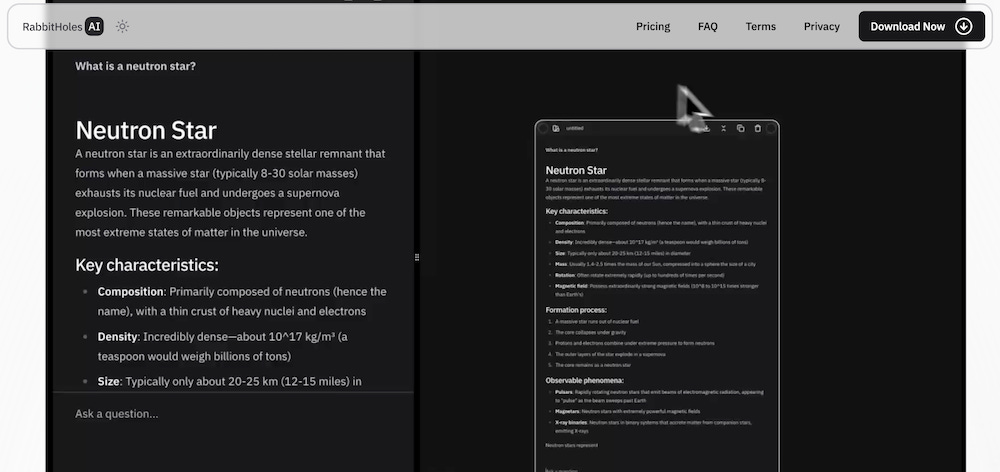Fish Food: Episode 643 - Thinking in systems
Systemic change, the future of AI/human integration at Microsoft, martech in 2025, disappearing media planning and buying and AI enabled rabbitholes
This week’s provocation: On changing the system
I wouldn’t call myself an ardent football fan but I am a fan of exceptional innovations and innovators from the world of sport and how they help us to challenge our own thinking. The other day I was talking to a client about systems thinking and change, and they mentioned the example of Johan Cruyff, arguably one of the most influential figures in modern football, and also one of the greatest players and managers of all time.
Cruyff was a proponent of the football philosophy known as ‘Total Football’. Originally developed by Rinus Michels at Ajax and then adopted by the Dutch national team, this system (or a philosophy really) was something of a radical departure from the rigid, position-based play which had dominated football for years. It was a system built on fluidity, emphasising attacking, dynamic, and flowing play where any outfield player could play any position. It’s core principles included:
Positional fluidity: Players were trained to interchange roles seamlessly. A defender could become a midfielder, a winger could drop deep, and a striker could cover defensively. This required high adaptability and intelligence.
Spatial dominance: The system prioritised controlling space rather than rigid formations. Players moved to create and exploit gaps, ensuring the team always had passing options.
Pressing and possession: When out of possession, players pressed aggressively to win the ball back quickly. When in possession, they kept the ball to dictate tempo.
Versatility over specialisation: Every player had to be comfortable in multiple roles, requiring technical mastery, tactical awareness, and physical endurance.
Cruyff implemented, popularised and refined the system to great effect at Ajax, the Dutch National Team (who reached the World Cup final in 1974 having not previously reached the finals since before WW2) and Barcelona. The Total Football system led to three consecutive European Cups (1971–73) for Ajax. Barcelona’s ‘Dream Team’ claimed four straight La Liga titles (1991–94) and a European Cup (1992). Cruyff was voted European Player of the Century in 1999 and became a highly successful manager. His genius lay not just in making the system effective but in applying it beautifully. It was a glorious fusion of pragmatism and artistry.
There is much to learn and admire about the system which changed how football is played, and some nice parallels with how modern organisations need to play in a fast-changing world. Such as the need for greater fluidity in roles (not boxing people in to a narrow set of responsibilities). At Barcelona, Cruyff once confounded traditionalists by playing a right-footed defender (Ronald Koeman) as a left-sided centre-back because Koeman’s passing angles allowed the team to switch play more effectively. The Total Football system focused on continually opening and exploiting gaps, being adaptable, moving quickly and having a bias to action. Cruyff believed that winning was a byproduct of playing the right way. He instilled a shared philosophy where every player understood their role in the system. Players drilled movements endlessly until they became instinctive, and training focused on small-sided games to reinforce specific tactical principles like 3 vs 3 positional awareness. During one Barcelona training session, Cruyff once banned all verbal communication so that the players had to coordinate movements, pressing, and passing purely through spatial understanding and eye contact.
Cruyff famously obsessed over details like the angle of a pass or the timing of a run (mastery comes from deliberate practice). At Ajax’s youth academy, he introduced a training drill where no goals were used and players were instead told to pass the ball into empty spaces where a goal should be, as a way to get them to think in terms of positioning and movement, not just scoring. He had a willingness to reinvent a system rather than just optimise an existing one, and a desire to win by changing how the game is played. It reminded me of how, if you want to create lasting and transformational change, systems trump objectives and targets.
But for me, one of the most interesting facets of how Total Football was implemented was how it empowered creativity within the system and enabled autonomy within alignment. There were clear guiding principles (shape, pressing triggers, passing patterns) but there was also freedom for improvisation in execution. Cruyff encouraged players like Neeskens, Rep, and later Guardiola to ‘think on the move’ and be creative within the structure that the system created.
This is an echo of one of my favourite analogies for balancing alignment with autonomy: traffic lights and roundabouts. Traffic lights are for situations and contexts that require a high level of control. Red for stop, green for go. But roundabouts control traffic in a different way. Each driver has a high level of autonomy, and can make their own decisions about what to do, but roundabouts work because everyone is working to a shared understanding of the rules of the road. It’s the common knowledge that enables this system to work.
The same should be true of aligned autonomy within organisations. The system provides the framework within which talent can be set free.
Rewind and catch up:
Innovating employee experience in the age of AI
On AI model collapse and the era of experience
Image 1: Bundesarchiv, Bild 183-N0716-0314 / Mittelstädt, Rainer / via Wikimedia Commons
Image 2: Jack de Nijs for Anefo / Anefo, CC0, via Wikimedia Commons
If you do one thing this week…
Microsoft's head of HR AI strategy Christopher Fernandez wrote an interesting vision piece this week talking about how AI agents can work alongside humans in the organisation, and the potential for ‘hyperscaling human thought’. It’s a bit jargon-heavy for my liking but I like his premise for how AI agents have the potential to amplify people’s ideas beyond the confines of the org chart, to connect ideas across a business, and how ‘agents can uncover insights previously hidden within bureaucratic structures’.
He talks about agents at the enterprise level and agents built by individual people, and about how every staff member at Microsoft will be encouraged to build their own agents using templates, integrated data access and guided workflows, to turn their expertise into scalable digital tools. The company have a hybrid approach where some agents work in structured walled gardens on defined tasks or domains using specific datasets, and an open approach characterised by decentralised agent development to enable individuals to extend their reach and impact. In all cases, agents function as an extension of human knowledge and insight, and perhaps as a form of personal expression. He even talks about a future where job candidates can prove their value by demonstrating their created AI agents rather than a CV.
A while back I wrote about an updated version of the ‘shamrock organisation’, which is about the strategic balance and integration that will need to play out in organisational resourcing across three areas: Core (a backbone of FTEs), Periphery (a fluid network of freelancers & contractors), and Exponential (a scalable intelligence layer of AI agents and automation). As we go further into AI agents being deployed at scale, businesses will need to think carefully about the interaction between these three elements.
Christopher’s article raises all kinds of interesting questions but this is the first piece I’ve read that sets out a realistic vision for true agent/human integration and how agents can amplify a foundation of human capability and expertise. (HT Ross Dawson)
Photo by vackground.com on Unsplash
Links of the week
Each year Scott Brinker and Frans Riemersma publish a ‘state of martech’ report which is hugely insightful on how technology is reshaping marketing. This year’s report (PDF) is something of a beast (137 pages) but looks at the evolving nature of the marketing technology stack (stacks are getting bigger but value isn’t keeping up), how AI is evolving marketing roles, and where we’re at with AI agents
Media planning and buying is becoming fully automated - WPP is consolidating it’s various media agency brands into WPP Media with a vision to implement centralised, tech and data-driven model: ‘Within five years…“there is no human that touches a media plan.”’ (HT Faris). This, after OMD’s Chief Media Officer saying that 80% of digital media buys will be directed through AI agents by 2030, and Google launching AI Max, a ‘comprehensive suite of targeting and creative enhancements’ for search campaigns. We are at risk of losing the subtlety and value that exceptional human media planning can bring.
Meanwhile Klarna, who boasted about how AI had enabled them to reduce their headcount by 1,000 and who memorably talked about how their AI chatbot was doing the work of 700 people, have started recruiting humans again after the AI led to ‘lower quality’
Scott Galloway’s post on the US Trump-induced brain drain and how Europe, China and other countries are actively trying to poach American scientists and academics is a potentially big story that is not getting much attention elsewhere
‘A good question is the antidote to, or a vaccine against, mediocrity.’ Phil Adams’ post on asking better questions was smart and useful.
‘This brings us to what I call The Vibe Coding Paradox. The more frictionless execution becomes, the more it loses value. Value shifts to discernment - knowing what to produce. But instead of adjusting to this shift, most people double down on output. They respond to new capability with more action, not better intention.’ The themes of Sangeet Paul Chowdray’s post about how to create advantage when execution is cheap resonate with the ideas around the risks of cognitive outsourcing (or cognitive debt as John Willshire termed it) that I’ve been writing about recently
It seems like the market for freelancers and strategy-related independents is pretty tough out there right now. I’m hearing this a lot, and I wanted to do something to help. So I’m offering my advice, for free, in the form of a call and a conversation. To keep it manageable I’ll cap it at 10 calls over the next few weeks for now but you’d be free to use the time and my input in whichever way you want - advice on leaving corporate world and starting out on your own, or advice on keeping the work flowing, or just a conversation about the state of things. Whatever helps. Offering this kind of advice is not something I necessarily specialise in but I have been independent for 16 years and so I guess that makes me some kind of ‘experience expert’. If you’d like one of the slots drop me a note at neil at onlydeadfish dot co dot uk and I’ll see what I can do.
And finally…
If you're a spatial thinker, Rabbitholes.ai (great name) looks like an interesting tool. It enables you to have long conversations with various AI models on an infinite canvas, create branches of exploration and thinking - ‘no more repetitive prompting, context loss, or tab jumping’. Kind of like Roam research and Obsidian perhaps?
Weeknotes
This week I ran three virtual workshops for my PwC client, and there was lots of prepping for upcoming stuff that is happening at the end of May. I’ll be doing more of the same next week but in the meantime it’s my birthday long weekend, and I shall be making the most of it, seeing my girls in Bristol, driving stupidly overpowered American muscle cars, and going on a very long bike ride. I cannot wait.
Thanks for subscribing to and reading Only Dead Fish. It means a lot. This newsletter is 100% free to read so if you liked this episode please do like, share and pass it on.
If you’d like more from me my blog is over here and my personal site is here, and do get in touch if you’d like me to give a talk to your team or talk about working together.
My favourite quote captures what I try to do every day, and it’s from renowned Creative Director Paul Arden: ‘Do not covet your ideas. Give away all you know, and more will come back to you’.
And remember - only dead fish go with the flow.








